(April 25, 2024) Strolling through the winding bylanes of Davangere alongside his grandfather, Aakarsh Shamanur fondly remembers marvelling at the old buildings. It was his fascination with Lego blocks that shaped his journey to becoming an architect. But his grandfather had different aspirations, he wanted him to work for the downtrodden. A few decades later, Aakarsh, now established in his profession as an architect, started the BePolite initiative to help empower the lives of street vendors through solar-powered lighting solutions. “I wanted to give back to the community, and having worked in the solar power sector in Europe, I realised the need for energy access in India,” Aakarsh tells Global Indian.
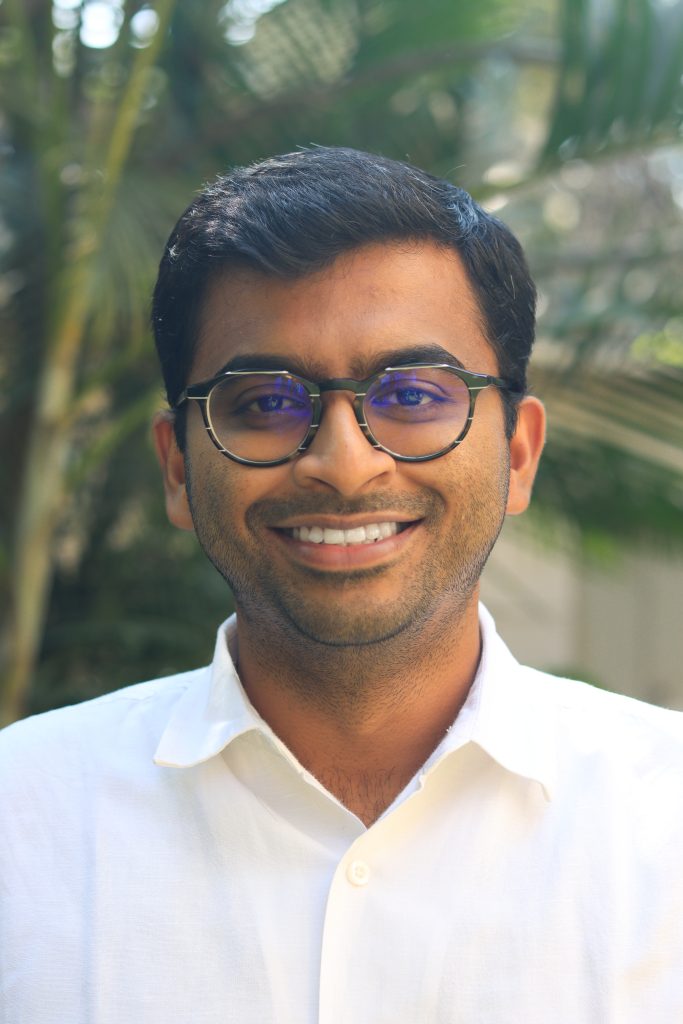
Aakarsh Shamanur
The 35-year-old made the bold decision of quitting his job in Europe to return to India to pursue his calling. “My grandfather’s vision got entwined with Gandhi’s talisman – ‘When you are in doubt if the decision positively impacts the poor and the weakest, then it’s a good decision.’ I knew I was headed in the right direction,” says Aakarsh, who has illuminated the lives of 450 street vendors till now with his solar-powered solutions.
The building blocks
Playing with Lego blocks while growing up sparked an interest in architecture for Aakarsh, alongside a natural knack for improving infrastructure. Years later, he enrolled himself in RV College of Architecture on merit. “My tuition fee was paid by the government due to my merit-based seat.” However, a turning point occurred during a college event when the chief guest made a thought-provoking remark that struck a chord with Aakarsh. “He said whoever received their education through tax-payers money has a responsibility to give back to the community.” This inspired Aakarsh, leading him to start the BePolite initiative which he says is his “way of giving back to the community every Diwali.”
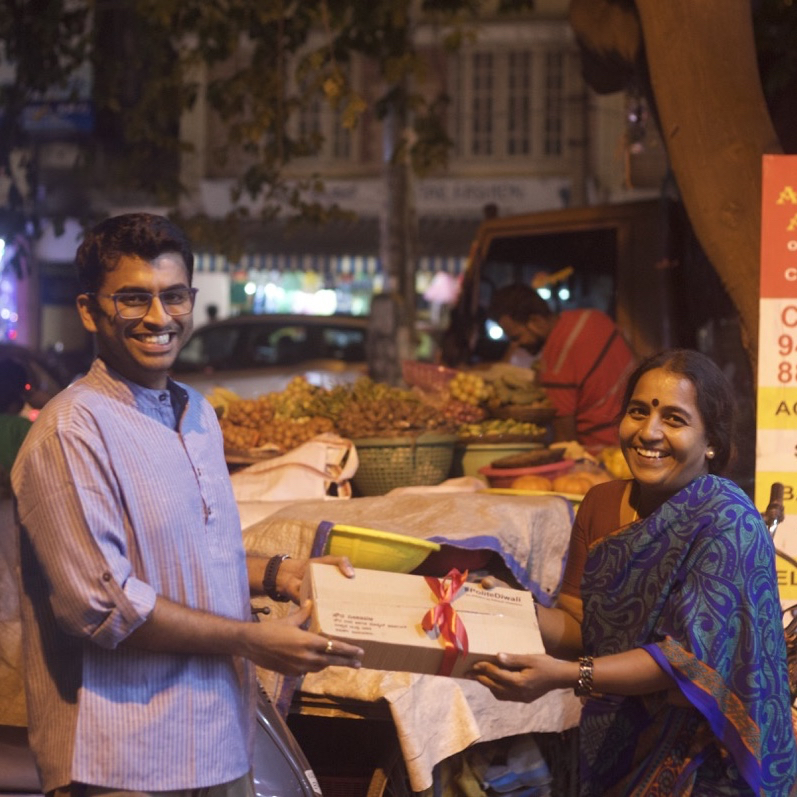
However, before realising his dream, he took a flight to the Netherlands to pursue his master’s in Urban Management and Development at Erasmus University. Those years proved formative, shaping him into the person he is today, and he credits the flat hierarchy in the Netherlands for it. “Regardless of your position, whether at work or university, everyone values your opinion. They emphasise teamwork and consensus building,” he says. While working on projects in solar power space in Europe, a short trip to India made him realise that renewable energy is the need of the hour. “In developed countries, solar power is used more for recreational purposes. We used to power music concerts using solar power, but back home, the same solution could power an entire village.”
Giving hope to street vendors
Armed with ideas and enthusiasm, he returned to Bengaluru but soon realised that the solutions needed to be tailored to local needs. For this, he spent three months in a village to understand the problems at the grassroots level. Acknowledging the need for energy access and the growing trend of urbanisation, he saw people moving from rural areas to cities in search of better opportunities. “Most end up becoming street vendors as it’s the easiest option. Seeing their challenges, I decided to help by providing them with clean, sustainable lighting solutions that don’t have a recurring cost every month associated with gas lights or candles. A solar product would be a good fit to reduce the operational costs every month,” explains Aakarsh. Under the BePolite initiative, he started by providing solar lights to street vendors, enabling them to continue their sales even after sunset. What started with lighting eventually became a marketplace with more solutions where he integrated mobile charging and later did a pilot project for refrigeration as well. “There are multiple layers to the initiative. However, sustainability and inclusivity are the keywords that govern the entire initiative.”
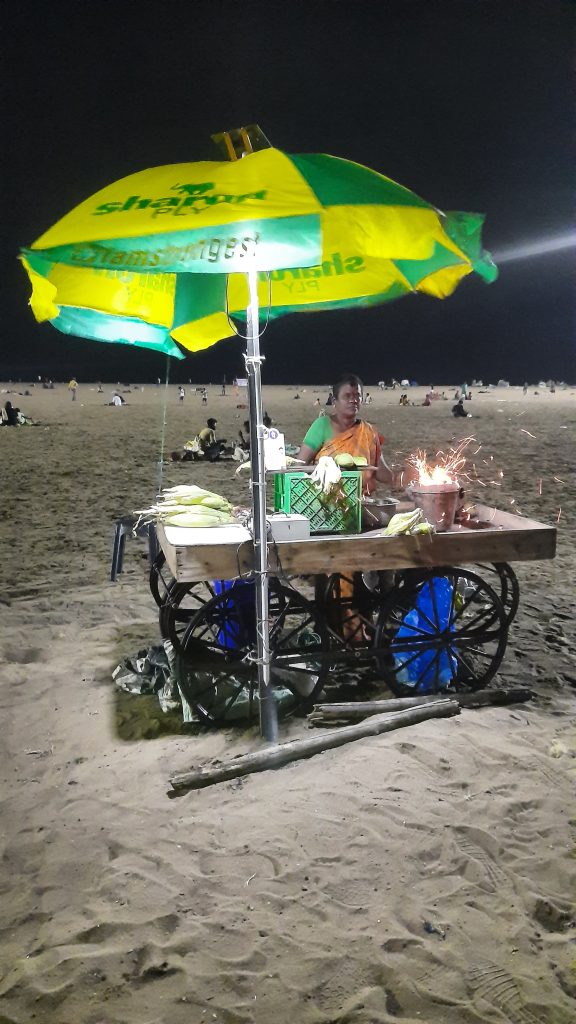
How it began
Growing up, Diwali was a traumatic time for Aakarsh who had asthma. “I would urge people to not burst crackers but it often fell on deaf ears. Soon I realised until you offer an alternative, you are not solving the issue. That’s how the idea of gifting a light on Diwali came up.” It was during Diwali 2018 that BePolite (portable light) did their pilot project in Bengaluru and soon started getting inquiries from Tier 2 cities expressing their interest in solar lights. “Initially, the lights were provided free of cost but now we charge 10 percent from the vendors. The light costs ₹3000 and we charge ₹500 from the vendors, which comes with a one-year warranty,” informs Aakarsh who turned to crowdfunding for raising funds. “It removes the inhibition of asking somebody to fund the initiative. Moreover, it helps reach out to a larger audience. In just a week, we raised ₹3 lakh.”
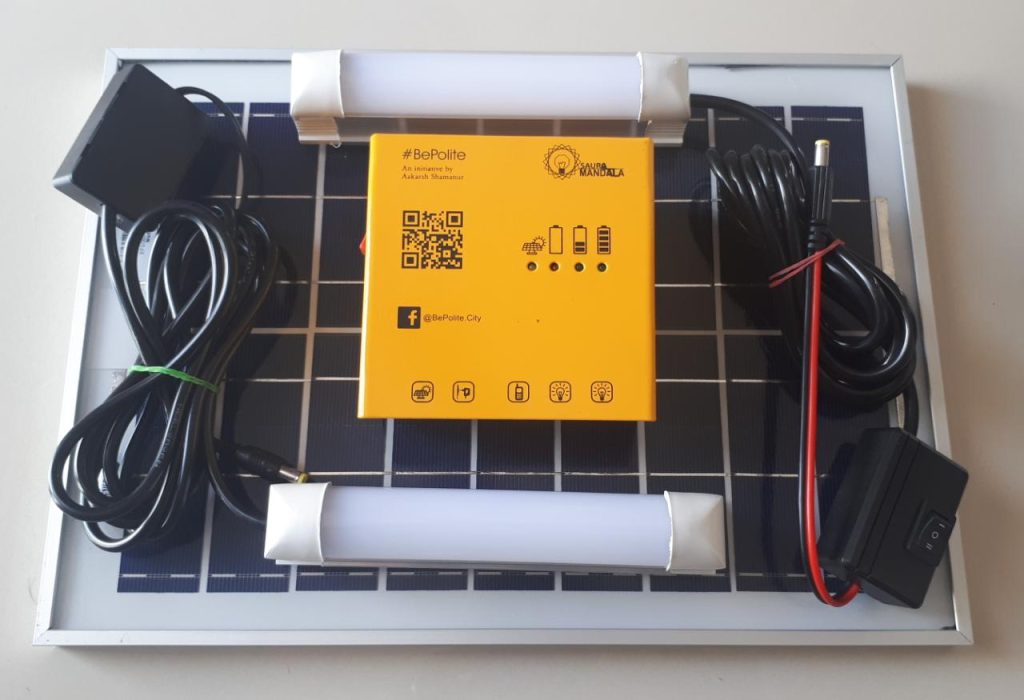
So, what sets their solar light apart from others available in the market? Akarsh highlights the superior quality of the light, encased in aluminium for durability. “When the vendors no longer need them, they can still get some scrap value.” Made in India, these lights are a little more expensive than their Chinese counterparts and boast a lifespan of three years. After that, they can be sent for servicing and refurbishing, thus extending their usability. “This way we also save them from reaching the landfill at an early stage,” says Aakarsh, who is piloting a powered umbrella this year which serves a dual purpose. “Keeping in mind the heatwave, vendors can use the umbrella for shade during the day, and the light can be used during the night.”
Expanding its reach
Consistency is paramount for Aakarsh, irrespective of the quantum of the output. “Even if we are reaching out to 10-20 vendors every year, it’s equally critical as we are staying consistent and making things happen,” says the man who supplied lights to Dell last year for a CSR initiative, distributing them to tribal students in the forest areas outside Bengaluru. Till now, they have distributed solar lights in Tamil Nadu, Kolkata, and Karnataka. “In Chennai, we gave the lights to fish vendors at Marina Beach.”
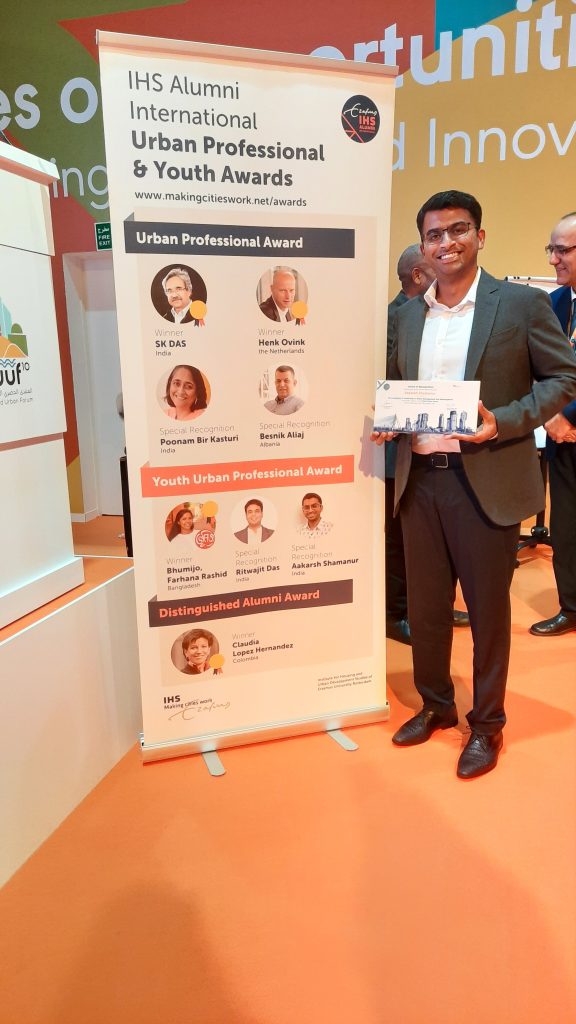
Aakarsh is happy that the BePolite initiative has brought dignity to the lives of street vendors, as he now observes an increased level of trust between street vendors and customers due to better quality of lighting. “Now the customers believe that the products sold to them are of good quality. Moreover, many vendors send the light to their kids in villages during their exams, thus prioritising the use of the light according to their convenience,” says Aakarsh.
Each year around Diwali, the BePolite initiative takes centre stage, sometimes extending up to Christmas, depending on the interest. Aakarsh plans to draw the government’s attention to the necessity of providing basic infrastructure to street vendors. “The ultimate goal is to switch towards vending zones. It can also become a platform of positive giving where people gift items to the needy – be it an umbrella or blanket,” signs off Aakarsh.



